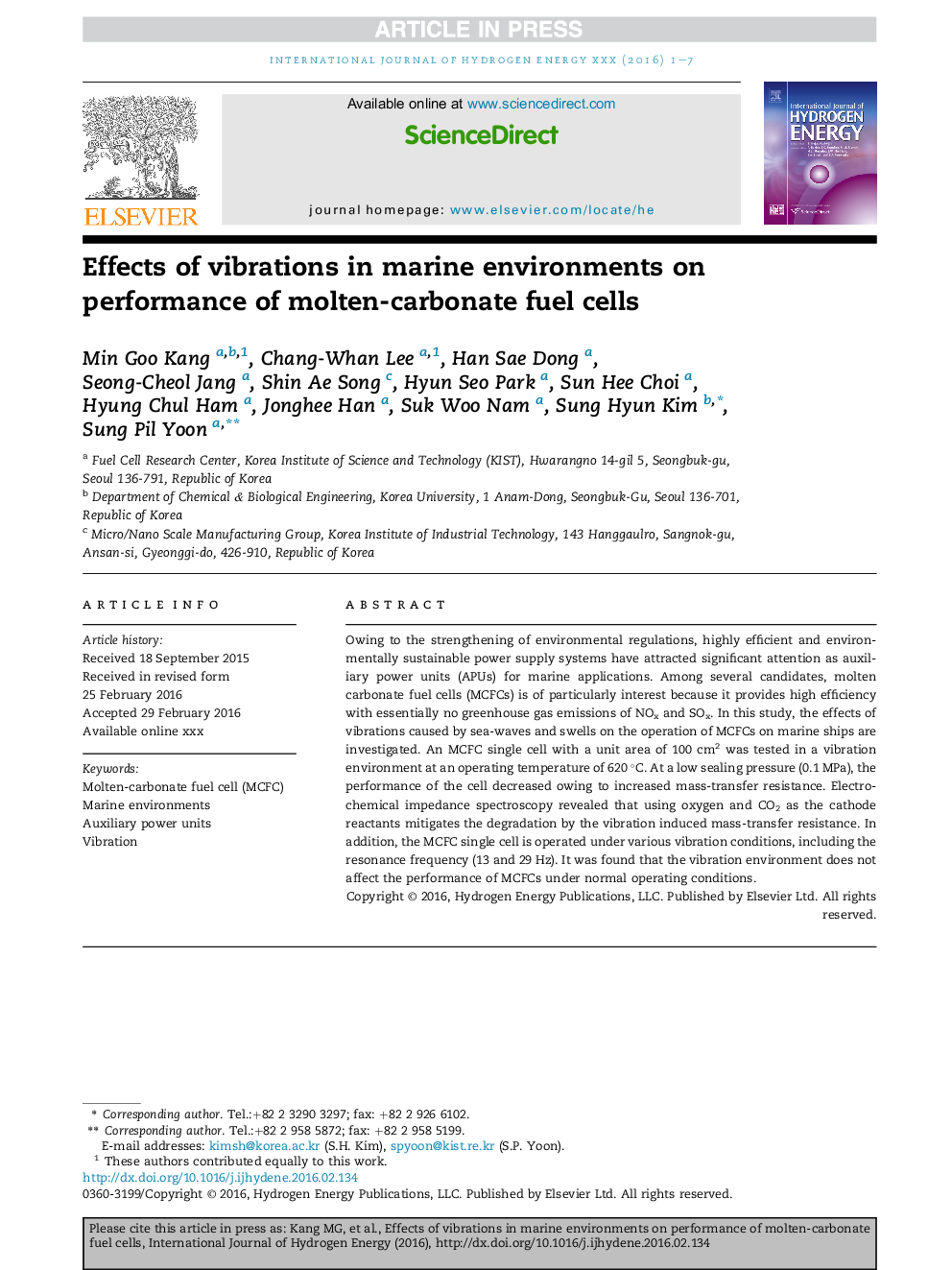| Article ID | Journal | Published Year | Pages | File Type |
|---|---|---|---|---|
| 5147422 | International Journal of Hydrogen Energy | 2016 | 7 Pages |
Abstract
Owing to the strengthening of environmental regulations, highly efficient and environmentally sustainable power supply systems have attracted significant attention as auxiliary power units (APUs) for marine applications. Among several candidates, molten carbonate fuel cells (MCFCs) is of particularly interest because it provides high efficiency with essentially no greenhouse gas emissions of NOx and SOx. In this study, the effects of vibrations caused by sea-waves and swells on the operation of MCFCs on marine ships are investigated. An MCFC single cell with a unit area of 100 cm2 was tested in a vibration environment at an operating temperature of 620 °C. At a low sealing pressure (0.1 MPa), the performance of the cell decreased owing to increased mass-transfer resistance. Electrochemical impedance spectroscopy revealed that using oxygen and CO2 as the cathode reactants mitigates the degradation by the vibration induced mass-transfer resistance. In addition, the MCFC single cell is operated under various vibration conditions, including the resonance frequency (13 and 29 Hz). It was found that the vibration environment does not affect the performance of MCFCs under normal operating conditions.
Related Topics
Physical Sciences and Engineering
Chemistry
Electrochemistry
Authors
Min Goo Kang, Chang-Whan Lee, Han Sae Dong, Seong-Cheol Jang, Shin Ae Song, Hyun Seo Park, Sun Hee Choi, Hyung Chul Ham, Jonghee Han, Suk Woo Nam, Sung Hyun Kim, Sung Pil Yoon,
